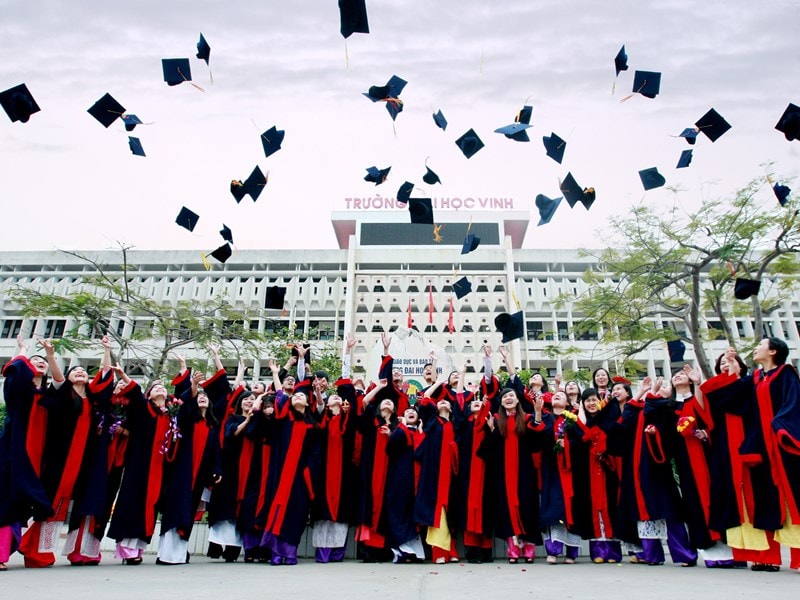Universities are autonomous in opening training majors.
The revised Law on Higher Education allows universities to have full autonomy, from academics, finance, opening majors to human resources.
On December 11, the Office of the President announced the Law amending and supplementing a number of articles of the Law on Higher Education. Passed by the National Assembly on November 19, the Law takes effect from July 1, 2019.
Major policiesThe most important amendment, according to the Director of the Department of Higher Education (Ministry of Education and Training) Nguyen Thi Kim Phung, is to expand and enhance the autonomy of the entire system. The high autonomy mechanism from being limited to 5 universities and 23 pilot schools will be expanded to all higher education institutions..
"When the Law comes into effect, schools will have the conditions to promote dynamism and creativity in all aspects: academics, finance, human resources... to be most effective, serving the school's development policy and competing in the entire system as well as internationally," said Ms. Phung.
New provisions in the revised Law on Higher Education significantly reduce the time for administrative procedures. For example, previously, schools had to report, register, and wait for permission from competent state agencies to open training programs and recruit and appoint senior personnel. When the new Law takes effect, schools will be able to decide immediately after meeting all conditions.
Ms. Phung emphasized that the new Law allows schools to be autonomous in opening majors, which means they can decide to open majors without having to ask for permission or register with the professional management agency. However, the Law stipulates more strictly the conditions for opening majors and quality standards for opening majors. For example, the standards for opening majors must be based on the market's human resource needs; the school's internal strength (teacher system, facilities, training programs) for that major; the society's acceptance of the training major and the school's products...
In addition, the opening of a training program must also be decided by the School Council. According to the new regulations, the council has at least 30% of people outside the school, including managers, social activists, scientists... These people will consider whether society needs that major or not, and whether the school's quality assurance conditions are sufficient to meet the training requirements of the major...
 |
| Students of Vinh University. Photo courtesy |
Budget allocation based on research and training order principles
Some other new policies in the revised Law on Higher Education are innovation in university governance and strengthening the University Council. According to the Law, the University Council is the highest authority of the university, with full authority to decide on key personnel (Principal), the school's development strategy as well as major investment policies. This is the body representing the owner (public universities), receiving autonomy from the state to implement autonomy in higher education institutions. On that basis, the school will issue internal regulations and rules to ensure transparency throughout the school as well as for social supervision.
The new law focuses on system development, especially encouraging large schools with potential to merge into large universities, or a number of schools in the same industry/locality to join together to form large universities that provide multi-disciplinary and multi-field training. With that mechanism, schools can also support and collaborate with each other in development, enhancing the competitiveness of Vietnamese universities with the world. In addition, the law allows the private university system to develop equally, almost entirely with public schools, especially in professional activities.
This law also innovates the financial management mechanism, ensuring transparency and efficiency, suitable for each type of higher education institution, to create conditions for schools to be autonomous. Accordingly, higher education institutions have the right to autonomously set and decide on tuition fees, ensuring that they are commensurate with the quality of training and announced when enrolling students.
The State allocates budget and resources for higher education according to the principles of competition, equality and efficiency through investment expenditure, research and development expenditure, research and training orders, scholarships, student loans and other forms. The State prioritizes investment in the development of a number of higher education institutions, training sectors of regional and international stature and high-quality teacher training institutions.


